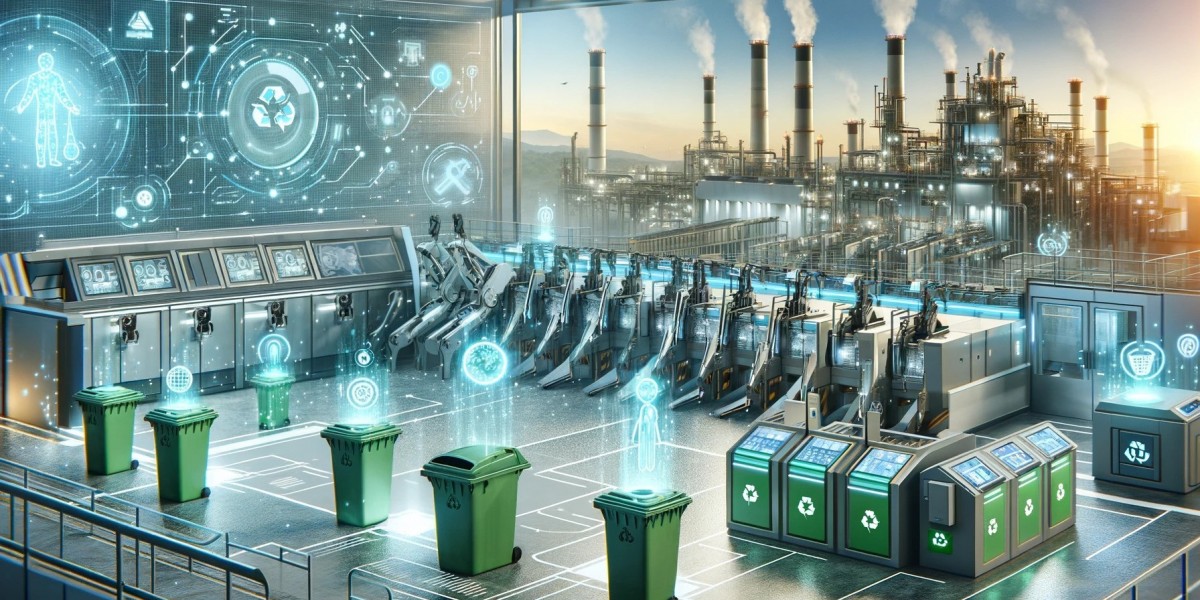Innovative Waste Sorting Technology
The introduction of advanced waste sorting technology has revolutionized the way waste is processed. These sorting systems use sensors and machine learning to automatically sort waste into recyclable and non-recyclable materials.
This not only speeds up the process but also increases the accuracy of sorting, which significantly boosts recycling rates. Such technologies ensure that fewer recyclables are mistakenly thrown away, reducing landfill use and conserving valuable resources.
Moreover, these automated sorting systems are capable of handling vast amounts of waste with minimal human intervention. This reduces the risk of workplace injuries and improves the overall efficiency of waste management facilities.
By leveraging cutting-edge technology, these facilities can manage waste more effectively, ensuring that everything that can be recycled, is recycled.
Digital Platforms for Waste Tracking
The deployment of digital tracking systems in waste management has brought transparency and accountability to previously opaque processes. These platforms track waste from its origin through to its final disposal or recycling, providing unprecedented visibility into the entire lifecycle of waste materials.
This detailed tracking is crucial for identifying the most significant sources of waste, and it helps in formulating targeted strategies to reduce waste generation.
One of the key benefits of these digital systems is the ability to monitor compliance with waste management regulations. Companies can use this data to ensure they are meeting legal requirements and avoiding hefty fines.
This regulatory compliance is not just good for businessit's also good for the planet, as it ensures harmful waste is treated and disposed of properly.
Smart Waste Management Systems
Smart bins and IoT-enabled devices are transforming city waste management operations into models of efficiency and sustainability. These smart bins are equipped with sensors that can signal when they are full, thus optimizing collection routes and schedules.
This technology ensures that trucks are only sent out when necessary, reducing carbon emissions and operational costs.
Furthermore, the data collected from these smart devices can be analyzed to predict waste generation patterns and inform city planning and public policy decisions.
By understanding when and where waste is most likely to accumulate, cities can better plan waste collection, reduce spillover, and keep public areas clean and hygienic.
The Impact of Skip Hire Management Software
In the context of smaller-scale operations, such as residential and commercial construction, the application ofskip-hire management software has streamlined operations significantly.
This type of software allows skip rental companies to manage their inventories more effectively, track the locations of their skips, and schedule drop-offs and pick-ups with unprecedented precision. The efficiency brought by this technology not only boosts the productivity of waste management but also enhances customer satisfaction by providing timely service.
Renewable Energy from Waste
Another exciting development in sustainable waste management is the conversion of waste into renewable energy. Technologies such as anaerobic digestion and incineration can transform organic waste and non-recyclable materials into electricity, heat, and fuel. This not only helps in managing waste but also contributes to reducing reliance on fossil fuels.
These energy-from-waste plants are becoming more common and are critical in the push towards sustainable energy solutions.
By converting waste into energy, we not only solve the problem of waste disposal but also create a renewable energy source that can power our cities.
As we continue to innovate and apply these technologies, the future of waste management looks not only more sustainable but also more promising in terms of environmental conservation and resource recovery. By embracing these technological solutions, we can hope to see a significant reduction in waste and a move towards a more sustainable world.








